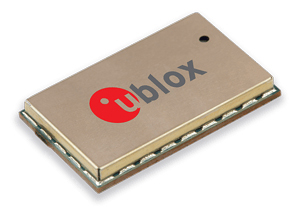u-blox has achieved certification of its SARA-R404M module for Verizon’s nationwide Category M1 (Cat M1) LTE network, which will support a broad range of industrial Internet of Things (IoT) applications. The module is claimed to be smallest available, measuring just 16 x 26 mm in an LGA form factor that is designed for easy integration and manufacturing.
“u-blox has been at the forefront of developing modules supporting the new LTE Cat M1 cellular air interface. We are pleased to be among the first suppliers supporting Verizon's LTE Cat M1 network with a Cat M1 module in such a small form factor,” said Patty Felts, Product Manager Cellular at u-blox.
The SARA-R404M LTE Cat M1 module will consume significantly less power than comparable 3G or 4G technologies and is optimized for long battery life of up to 10 years for some use cases, and offering an extended temperature range of -40 to +85°C, reducing maintenance expenses and the total cost of device ownership. It also supports extended coverage in buildings and basements with a 15 dB coverage enhancement as compared to GSM. Further, critical firmware updates can be delivered via the u-blox uFOTA (firmware over the air) client server solution, which supports LWM2M – a light and compact protocol that is ideal for IoT applications.
LTE Cat M1 is part of the 3GPP Release 13 standard supporting low power wide area technologies in the licensed spectrum and specifically supports IoT applications with low to medium data throughput rates. It can support applications requiring longer battery lifetimes, low latency and mobility. The market potential for this new technology is extensive and will cover applications in many areas, such as the smart home, security systems, industrial monitoring and control, asset tracking, telematics, connected health, smart metering, and smart cities.
Thanks to the u-blox nested design, migration between the SARA-R404M module and the company’s other 2G, 3G and 4G modules is easy, while enabling future-proof, seamless mechanical scalability across technologies.

